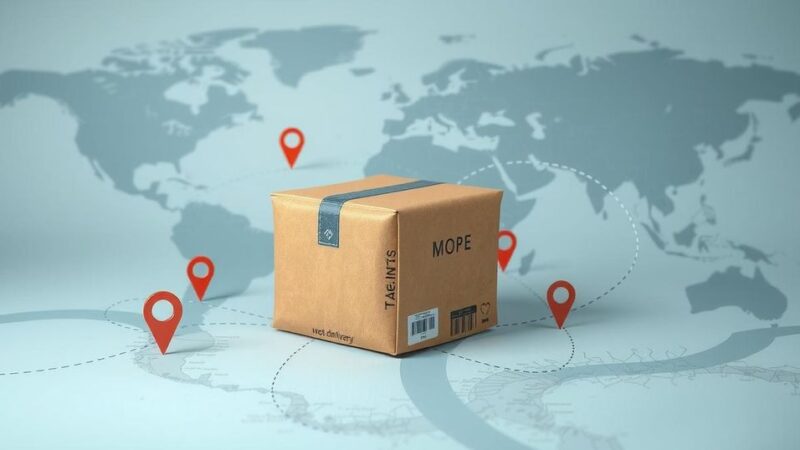Thailand intends to strengthen rail ties with Laos and China; Malaysia reports 5.9% trade growth in February 2025; Microsoft expands AI infrastructure; Lithuania approved for ASEAN treaty access; Malaysia resumes MH370 search; semiconductor industry faces obstacles; Mexico seeks closer ties with ASEAN; ASEAN promotes sustainable agriculture; Singapore addresses global security; Hong Kong eases entry for ASEAN guests; human trafficking warnings in the Philippines; Thailand reduces visa-free stays; Singapore to launch solar-powered boats; Thailand waives re-entry fees for migrant workers; earthquake in North Sumatra; job opportunities for persons with disabilities increase in Thailand; investment discussions for tourism in Thailand; Maha Songkran 2025 expected to gain global recognition; Malaysia warns about cryptocurrency scams; Semeru volcano erupts in Indonesia.
Thailand seeks to enhance its rail connections with Laos and China to bolster regional trade and infrastructure. This initiative may facilitate smoother transport of goods, fostering closer economic ties between the countries involved.
In February 2025, Malaysia’s trade turnover exhibited a robust 5.9% year-on-year increase, reaching 223.89 billion MYR (approximately 55.97 billion USD), reflecting sustained economic growth.
Microsoft continues to expand its AI infrastructure in Malaysia. An executive from the technology giant stated that despite ongoing US export restrictions on semiconductor technology, their operations within Malaysia have remained unaffected.
Meanwhile, Lithuania has received its Cabinet’s approval to pursue accession to the ASEAN Treaty of Amity and Cooperation. The country intends to submit its request to Malaysia, the current ASEAN Chair.
In a significant development, Malaysia has authorized the resumption of the search for the missing flight MH370, a mystery that continues to trouble the families of those onboard.
Challenges persist in Malaysia’s semiconductor industry, facing obstacles such as a lack of skilled talent, financial constraints, and supply chain issues that must be addressed to compete effectively on a global scale.
Mexico is strengthening its cooperation with ASEAN, viewing its membership in the Treaty of Amity and Cooperation as a pathway for broader collaboration across various sectors.
The ASEAN bloc is advancing towards sustainable agriculture. The Lao Ministry of Agriculture and Forestry recently introduced guidelines aimed at transitioning to agroecology while integrating green finance initiatives.
Singapore is committed to enhancing global security in light of rapidly advancing technologies that pose asymmetric threats, as articulated by Deputy Prime Minister Heng Swee Keat.
To streamline immigration for ASEAN guests, Hong Kong is easing entry requirements for visitors who have contributed significantly to the region’s economic landscape.
Reports indicate that up to 100,000 individuals remain employed at scam centres along the Thailand-Myanmar border, highlighting ongoing challenges in tackling such illicit operations.
The Philippine government issued warnings regarding human trafficking, coinciding with the repatriation of three victims from Cambodia, illustrating the persistent issue of trafficking in the region.
Thailand has announced the reduction of visa-free stays from 60 days to 30 days for eligible nationals, a decision agreed upon after extensive discussions with key stakeholders.
Next month, Singapore will introduce solar-powered electric boats to the Singapore River, with the first two vessels commencing service, marking a step towards sustainable urban transport solutions.
During the upcoming Songkran holiday, Thailand will waive re-entry fees for migrant workers from April 1 to May 15, aiming to ease their return during the festive season.
A recent earthquake struck North Sumatra, Indonesia, recorded at a focal depth of 86 kilometers, as reported by the German Research Centre for Geosciences (GFZ).
The Thai government is expanding job opportunities for individuals with disabilities, compelling businesses with 100 or more employees to hire a stipulated number of disabled persons, with non-compliant companies required to contribute to the Disability Support and Development Fund.
As part of its tourism strategy, the Thai government is collaborating with a global business leader to boost investment in tourism, with 2025 designated as the Amazing Thailand Grand Tourism and Sports Year.
Maha Songkran 2025 is projected to be a grand celebration, with plans to elevate the festival to a globally recognized cultural event.
Amidst rising concerns, Malaysia has cautioned the public against cryptocurrency investment scams, highlighting the increasing trend of commercial crime in this area, as noted by Bukit Aman CCID Director, Datuk Seri Ramli Mohamed Yoosuf.
Lastly, Semeru volcano in Indonesia experienced multiple eruptions on March 17,, marking a significant geological event observed by local authorities.
Overall, these developments underline the dynamic nature of Southeast Asia’s political, economic, and social landscape. Notable initiatives such as trade agreements, technology investments, and regional disaster responses indicate a concerted effort to foster cooperation and resilience in the region.
The recent developments across Southeast Asia reflect a robust focus on enhancing regional cooperation and addressing critical challenges. From strengthened trade relations and technological advancements to proactive measures against human trafficking and environmental sustainability, the region exhibits resilience and ambition. These initiatives contribute to the overall prosperity and security, demonstrating a commitment to fostering interconnectedness and addressing pressing social issues.
Original Source: en.vietnamplus.vn






